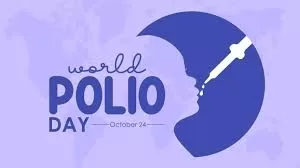Recent studies suggest that intermittent fasting, widely celebrated for its metabolic health benefits, may have unintended consequences on hair growth. Research published on December 13 in the journal Cell reveals that while intermittent fasting improves metabolic health in mice, it can also slow hair regrowth, potentially impacting people who rely on fasting for its benefits.
The Study: Mice and Humans Show Surprising Results
The groundbreaking study, led by stem cell biologist Bing Zhang from Westlake University in Zhejiang, China, used both mice and a small human trial to explore the effects of intermittent fasting on hair regrowth. In the animal study, researchers shaved mice and subjected them to different fasting regimens, including time-restricted feeding (TRF) and alternate-day fasting (ADF). Surprisingly, the mice on fasting schedules exhibited significantly slower hair regrowth compared to those with unlimited access to food.
After 30 days, control mice with free access to food had nearly regrown their fur, while the fasting mice showed only partial hair regrowth, with the process stretching to 96 days. This raised questions about the long-term impacts of fasting on hair health.
Why Fasting Might Slow Hair Growth
The research suggests that intermittent fasting induces oxidative stress in hair follicle stem cells (HFSCs), which play a critical role in hair regeneration. HFSCs go through cycles of activation and dormancy, and hair growth depends on their ability to reactivate. However, the study found that fasting triggers the apoptosis (programmed cell death) of these cells, likely due to an increase in free fatty acids near the hair follicles. These fatty acids cause oxidative stress, damaging the cells responsible for hair regrowth.
“In mice, adipose tissue releases free fatty acids during fasting, which enter activated HFSCs. However, these cells lack the necessary machinery to metabolize the fatty acids properly,” explains Zhang.
While fasting had minimal effect on epidermal stem cells (those responsible for skin barrier maintenance), it was detrimental to HFSCs, leading to apoptosis in the fasting mice. The team discovered that topical application of antioxidants, such as vitamin E, could help mitigate the effects of oxidative stress and promote better survival of the hair follicle cells.
A Glimpse into Human Effects
The researchers also conducted a small clinical trial with 49 healthy young adults to explore whether the effects observed in mice would hold true for humans. Participants followed an 18-hour fasting schedule each day, and results indicated an 18% reduction in the rate of hair growth compared to those who did not fast. However, the small sample size and short duration (only 10 days) mean that further research is needed to confirm the findings and explore long-term effects.
Implications for Health and Future Research
While the study sheds light on the potential impact of intermittent fasting on hair growth, Zhang is quick to reassure the public about its broader health benefits. “We don’t want to discourage people from fasting, as it offers numerous health advantages. However, it’s important to recognize that it may have some unintended consequences on hair growth,” he says.
The effects of fasting on human hair growth may be milder than in mice, thanks to differences in metabolic rates and hair growth cycles. Zhang’s team emphasizes that many human hair follicle stem cells may still survive, albeit with slower regrowth.
In the future, researchers plan to collaborate with hospitals to study how fasting impacts other types of stem cells in the body, including those involved in skin wound healing. Additionally, they aim to identify metabolites that could help support HFSC survival during fasting, possibly improving hair regrowth and preventing damage.
As intermittent fasting continues to grow in popularity, understanding its full impact on the body—especially on seemingly unrelated processes like hair growth—remains a critical area of research.
Reference:
“Intermittent fasting triggers interorgan communication to suppress hair follicle regeneration” by Han Chen, Chao Liu, Shiyao Cui, Yingqian Xia, Ke Zhang, Hanxiao Cheng, Jingyu Peng, Xiaoling Yu, Luyang Li, Hualin Yu, Jufang Zhang, Ju-Sheng Zheng and Bing Zhang, 13 December 2024, Cell. DOI: 10.1016/j.cell.2024.11.004












